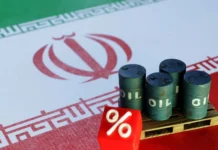The IMF Mission Commends The Central Bank Of Iraq.
June 25, 2025 The International Monetary Fund (IMF) mission, led by Jean-Guillaume Poulain, which met with the Central Bank of Iraq (CBI) from May 4 to 13, 2025, commended the CBI‘s work in several areas. It confirmed that the CBI has made progress in absorbing excess liquidity by increasing the issuance of short-term debt instruments (CBI drafts and Islamic certificates of deposit), adjusting subscription limits for banks in CBI auctions, and improving liquidity forecasting tools and practices.
The statement issued by the International Monetary Fund stated that the mission commended the efforts of the Central Bank of Iraq to successfully transition to the new trade finance system, indicating that commercial banks now process trade finance transactions entirely through their relationships with correspondent banks.
The Central Bank of Iraq has achieved significant progress by transitioning to the new system for financing foreign trade through correspondent banking channels, instead of relying on the daily dollar auction.
This development has contributed to enhancing banks’ compliance with international transparency requirements, such as
OFAC regulations and others, and improving their relationships with global correspondent banks.
This step has resulted in
narrowing the gap between the official dollar price and its parallel price, indicating relative success in
curbing illegal speculation and
reducing currency leakage.
The foreign exchange management methodology has become more effective compared to the past,
especially with the Central Bank of Iraq continuing to take complementary measures, such as requiring traders to submit genuine import invoices and simplifying procedures for obtaining hard currency for legitimate importers.
In parallel, the mission welcomed the progress made in the use of digital technology and the Iraqi authorities’ intention to implement a comprehensive reform of the banking sector, calling for its completion to be accelerated without delay.
The Iraqi government, with technical support from the International Monetary Fund and other international bodies, has begun implementing initial steps to reform government banks, including
auditing the quality of assets,
estimating the size of non-performing loans, and
developing a draft plan to restructure the two largest government banks (Rafidain and Rashid) financially and administratively.
The Iraqi financial sector has also witnessed an increasing trend towards digitization and the adoption of modern financial technology, whether in electronic payment services or the launch of banking platforms via the Internet and mobile phones.
The International Monetary Fund believes that these
technical improvements, along with
steps to enhance cybersecurity in banks,
promote financial inclusion,
expand private banking activity, and
restructure government banks,
will
enhance the efficiency of financial services and
increase foreign correspondents’ confidence in the Iraqi banking sector.
The report also noted the
expansion of private banks’ activity in trade finance and small business financing, with expectations of
further increases if obstacles are removed.
Initiatives to
enhance financial inclusion,
modernize electronic payment systems, and
reduce reliance on cash in the economy
are also crucial to strengthening banking depth.
The Central Bank of Iraq launched a national financial inclusion strategy during the first half of 2025.
The report also included important recommendations to enhance financial stability and facilitate the transfer of monetary policy effects to the real sector, including: reducing the phenomenon of dollarization, in which Iraq has made significant progress over the past two years;
the importance of accelerating the completion of the
comprehensive restructuring plan for banks to enhance their solvency; the importance of
strengthening corporate governance for banks,
developing digital infrastructure and cybersecurity for the financial sector;
strengthening the role of private banks in financing economic development; and
continuing to improve anti-money laundering and counter-terrorism financing procedures.
It is also important for the Central Bank of Iraq to continue increasing the issuance of short-term securities to ensure better management of excess liquidity. Central Bank of Iraq Media Office https://cbi.iq/news/view/2916
The Central Bank Sponsors The Launch Of The Al-Fursan Entrepreneurship Program.
June 25, 2025 The Central Bank of Iraq hosted a celebration announcing the launch of the “Fursan” program, an Iraqi-inspired initiative under the direct sponsorship of His Excellency the Governor of the Central Bank of Iraq.
The program serves as a realistic investment program for entrepreneurs, aiming to create real opportunities for youth and enhance the role of the private sector in developing the national economy.
In his speech at the ceremony, His Excellency the Governor of the Central Bank of Iraq, Mr. Ali Mohsen Al-Alaq, emphasized that the Central Bank of Iraq has prioritized supporting projects related to the youth segment, which contributes to the local economy with products and services that contribute to raising the gross domestic product, ensuring an effective role in this regard.
In light of the recent reforms, the Iraqi banking sector can also focus on supporting income-generating small and medium-sized enterprises that directly support the private sector.
The “Fursan” program helps participants access investment opportunities and obtain soft loans for those who qualify. The program also provides a safety net that ensures the continuity of promising projects and prevents their failure.
These projects serve as incentives for innovative youth and create new job opportunities
that contribute to sustainable economic and social development in Iraq.
A group of young people presented their projects, highlighting the products they offer and their assessment of market demand and available potential, with the hope that other entrepreneurs will join them in the future. Central Bank of Iraq Media Office June 25, 2025 https://cbi.iq/news/view/2917
An Economist Points To A Decline In Liquidity And The Loss Of Thousands Of Jobs In Iraq.
Economy 2025-06-25 |Source: Alsumaria News 3,726 views Alsumaria News – Economist Ahmed Abdul Rabbah revealed on Wednesday the reasons behind the ban on a number of local Iraqi banks from receiving foreign transfers. He emphasized that the continued ban on 32 Iraqi banks from dealing in dollars not only leads to a decline in liquidity but also threatens the loss of thousands of jobs at these banks.
Ahmed Abdul Rabbo told Sumaria News that the banks operating in the country that handle remittances are Iraqi in terms of registration and establishment, but some of these banks hold majority ownership stakes in foreign investors, which gives them advantages over local banks.
The economic expert attributes the deprivation of a number of local banks from foreign transfers to
their lack of banking relationships with global correspondent banks such as JP Morgan and Citibank,
unlike banks owned by foreign investors, which maintain extensive correspondent banking networks.
He pointed out that those banks in which foreigners hold significant stakes continue to dominate the remittance sector, benefiting from their global network of relationships. He explained,
“I find it essential for the Central Bank of Iraq to diversify the basket of currencies used in emittances by adopting alternative currencies such as the Emirati dirham, the Chinese yuan, and the euro.
I also call on the Central Bank to guarantee a number of Iraqi banks that adhere to international standards, in order to facilitate the opening of accounts for them with international banks such as Citibank and JPMorgan.”
He added that the US sanctions imposed on 32 Iraqi banks remain, in his view, unjust and illogical, as they disrupt the structure of the banking system, negatively impact opportunities for competition and growth, limit the liquidity of these banks, and leave them vulnerable to bankruptcy.
The continued ban on dollar transactions for 32 Iraqi banks not only leads to a decline in liquidity, according to the expert, but also threatens the loss of thousands of jobs at these banks, whether they have been closed or restricted in their operations. It also deepens the crisis of confidence in these banks as intermediary institutions.
This situation has forced many companies and individuals to deal only with “dominant” banks, reducing the opportunities for local banks in the market.
The economic expert noted that if
reform efforts continue and international standards are fairly applied,we may witness a real decline in the role of the black market and a gradual return of committed local banks to competition on a more equitable basis.
https://www.alsumaria.tv/news/economy/531261/اقتصادي-يؤشر-أمرًا-يؤدي-إلى-انخفاض-السيولة-وفقدان-آلاف-الوظائف-في-العر
For current and reliable Iraqi news please visit: https://www.bondladyscorner.com/






